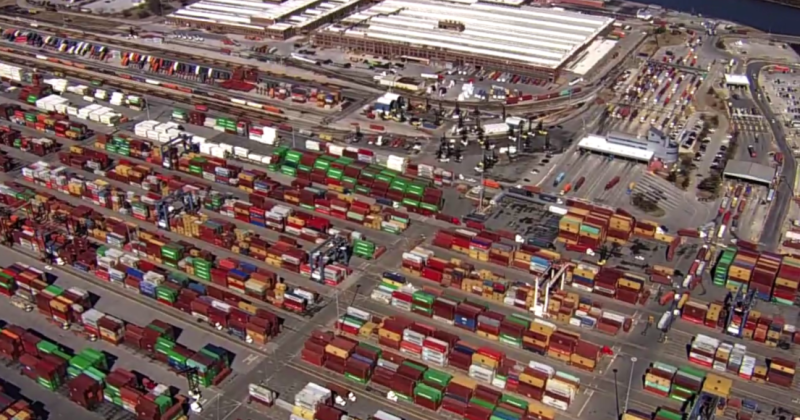
The United States dramatically escalated its trade war on Wednesday, doubling tariffs on steel and aluminum imports to a staggering 50%. This move sent shockwaves through a meeting of OECD ministers, casting a long shadow over the already fragile global economy. The increased levies, effective immediately, mark a significant intensification of President Trump’s protectionist policies.
President Trump’s aggressive tariff strategy has long strained relationships with key trading partners, leading to a flurry of negotiations aimed at avoiding these punitive duties. The OECD, a group of 38 mostly developed nations, recently slashed its global growth forecast, citing these tariffs as a major contributing factor. Their chief economist, Alvaro Pereira, warned that the U.S. itself will bear the brunt of the economic consequences, with impacts on trade, consumption, and investment already evident.
While some of President Trump’s tariffs face legal challenges, they remain in effect for now, adding to the tense atmosphere at the ongoing OECD ministerial meeting in Paris. High-level talks are underway, with U.S. Trade Representative Jamieson Greer meeting with the European Union’s Maros Sefcovic and UK Trade Secretary Jonathan Reynolds to attempt damage control. While the UK, under a recently announced trade pact, will see imports remain at 25% for now, the overall situation remains precarious.
The EU has strongly condemned the tariff hike, stating it undermines ongoing negotiations and reserving the right to retaliate. Canada, a major steel and aluminum supplier to the U.S., has labeled the tariffs illegal and unjustified. Meanwhile, other G7 nations expressed urgency in finding negotiated solutions, highlighting the widespread concern over the escalating situation. Mexico, heavily reliant on U.S. trade, plans to seek an exemption, arguing that the tariffs are unfair given the U.S.’s steel export surplus to Mexico.
The White House confirmed that letters were sent to trading partners urging concessions before a Wednesday deadline. This action follows earlier, broader tariffs imposed on nearly all U.S. trading partners, with further increases for countries like the EU and Japan temporarily paused but set to resume in early July. Adding to the already complex situation is the ongoing tension with China, marked by additional tariffs and counter-tariffs, despite a temporary de-escalation agreement in May. President Trump himself commented on the situation, highlighting the challenges in negotiations with China, particularly regarding the approval of critical mineral exports.
With the global economy already facing headwinds, President Trump’s decision to double steel and aluminum tariffs throws a significant wrench into the works. The coming weeks and months will be critical in determining the full impact of this dramatic escalation and the potential for further global trade conflict.









